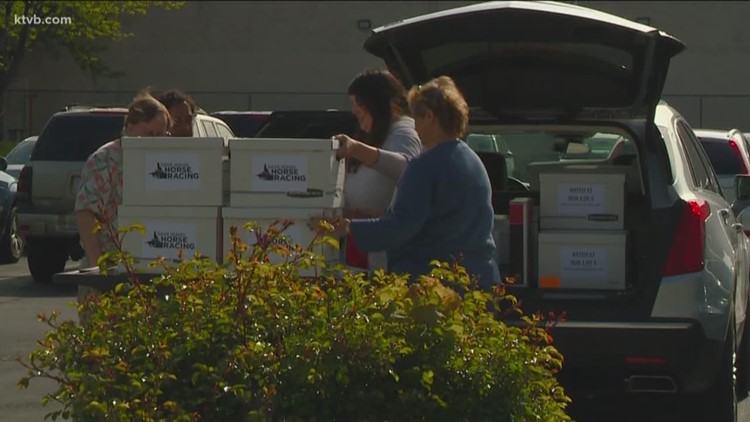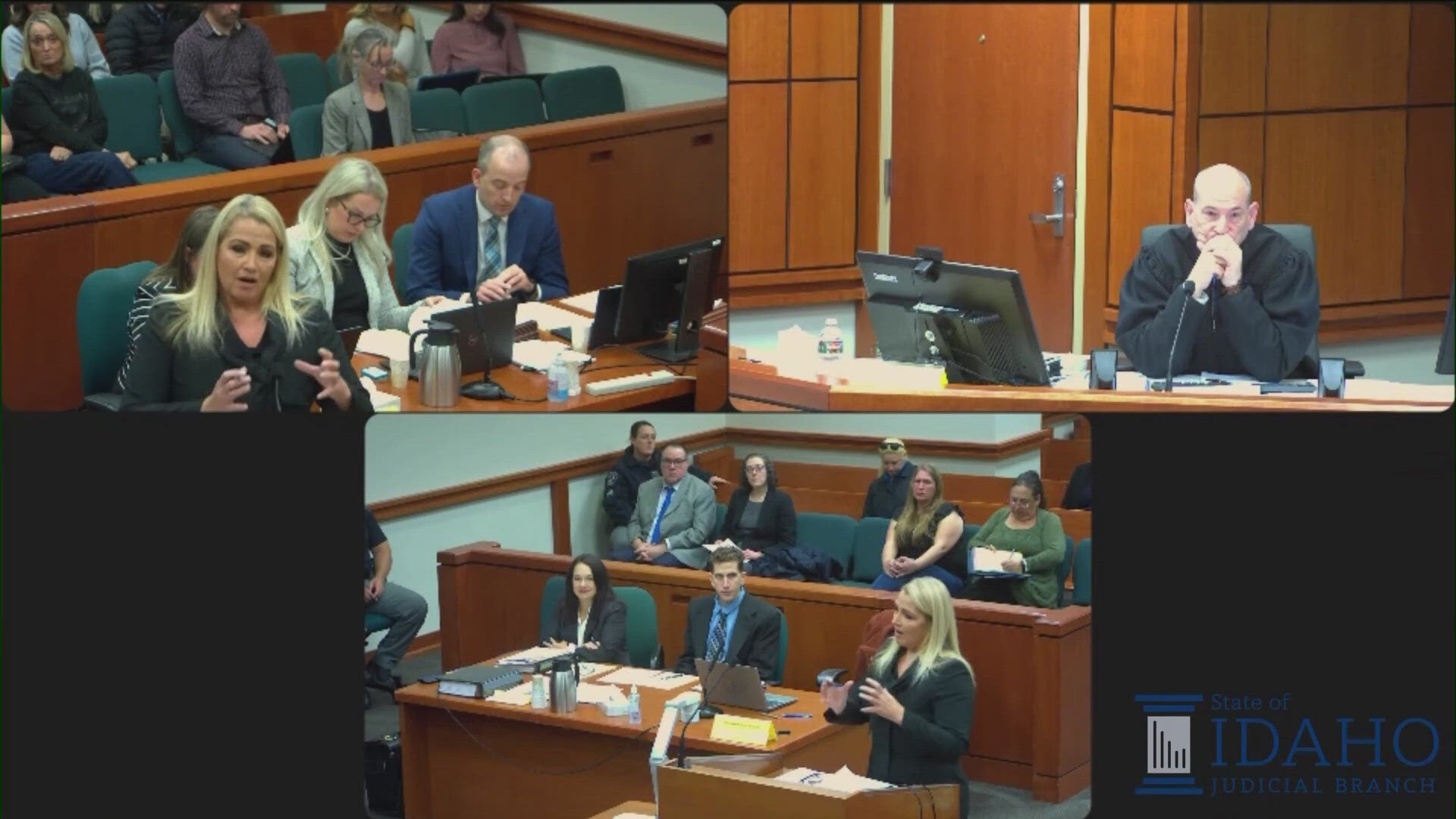BOISE, Idaho — Gov. Brad Little will consider two pieces of legislation that would dramatically toughen the requirements to get an initiative or referendum on the Idaho ballot.
Following a public outcry, the Senate voted 20-15 to approve legislation Wednesday softening requirements of another ballot initiative bill. Both bills have now passed both chambers.
The first piece of legislation cleared both chambers last month and requires signatures from 10% of registered voters in 32 of 35 districts in six months. It also requires a fiscal note and possible funding source for the proposed law.
Opponents said those rules made the ballot initiative impossible and violated the Idaho Constitution.
"There were some comments from the public and other folks that possibly that was a bridge too far," said Republican Sen. Scott Grow during debate Wednesday. "So, having listened to a lot of different comments from people, we felt it would be helpful to reduce some of the requirements."
The second bill requires signatures from 24 of Idaho's 35 legislative districts in nine months. It also requires 10% of registered voters and a funding source.
Current rules require signatures from 6% of voters in 18 districts in 18 months.
The plan among lawmakers in leadership in the House and Senate is to have Little, a Republican, sign both the original and follow-up bill. The language in the second bill softening ballot initiative requirements would replace the language in the original bill.
Little declined to comment to The Associated Press about his plans concerning the initiatives during a public appearance Tuesday.
"I haven't seen them yet," he said. "We'll see. All in waiting."
But his office has been keeping a tally of texts and calls to the governor about the initiative and it says they have been running heavily against making ballot initiatives tougher.
The ballot initiatives bills have become some of the most contentious legislation this session. They are seen as a reaction by lawmakers to the Medicaid expansion passed by voters in November with 61% of the vote following years of inaction by the Legislature. The federal government would pay 90 percent of the cost, but Idaho still has to come up with $20 million and lawmakers have been fighting over how to do that.
Backers of the legislation say it's needed to give rural voters an equal voice due to information technology and social media that will increasingly allow initiative backers to target growing population centers where groups supporting particular issues live. Supporters say that signatures in just four highly populated areas can get an initiative on the ballot.
Idaho is growing fast, with most of that growth in urban areas, which tend to contain more Democrats than other parts of the state. Backers of making ballot initiatives tougher, particularly in the Republican-dominated Legislature, say it's reasonable to make sure more signatures must be collected from rural areas so that initiatives that make the ballot are something voters across the state truly want.
But opponents of both the original and trailer bill say it will make ballot initiatives nearly impossible. Opponents also say the 10% of registered voters rather than 10% of voters who voted in the last election is too high a requirement.
"Idahoans are clamoring for this not to happen," said Democratic Sen. Maryanne Jordan during the Senate debate.
Republican Sen. Mark Harris voted against the bill on Wednesday after having voted for the more difficult requirements in the previous bill. He said the softer bill watered down the requirements.
"It takes that voice away from the whole state," he said.



